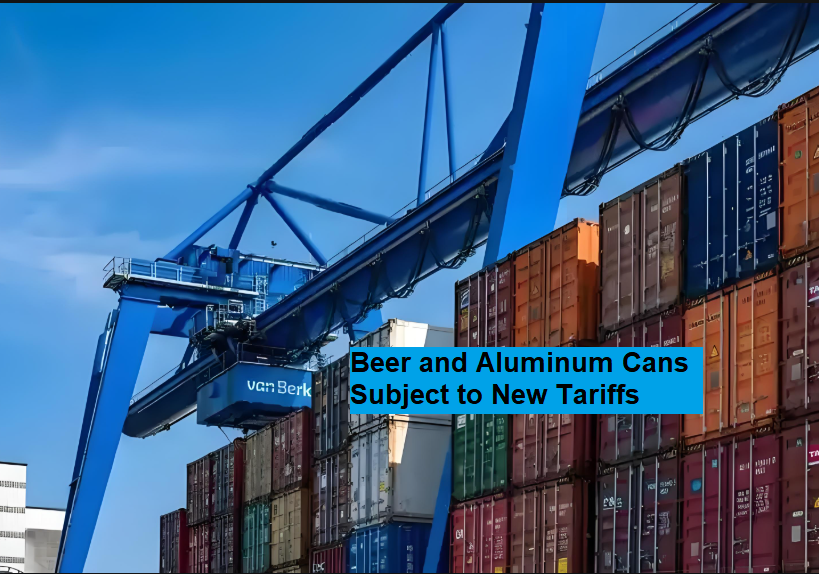On April 2, 2025, the U.S. Department of Commerce’s Bureau of Industry and Security (BIS) published a draft Federal Register notice introducing additional aluminum derivative products.
The 25% tariff on these derivatives will take effect at 12:01 a.m. Eastern Time on April 4, 2025. Malt beer and empty aluminum cans will now be subject to the previously announced 25% Section 232 aluminum tariffs.
The BIS specifically added malt beer and empty aluminum cans to the aluminum derivatives annex. Notably, the draft Federal Register provides no exemptions for beer or empty aluminum cans eligible under the U.S.-Mexico-Canada Agreement (USMCA). U.S. Customs and Border Protection (CBP) is expected to issue guidance stipulating that the 25% tariff applies only to the aluminum content value of imported malt beer.
If the aluminum content value is unknown or unverifiable, CBP’s prior guidance mandates applying the 25% tariff to the entire import value. Additionally, the tariff will apply to the aluminum content of empty aluminum cans.
This policy falls under the Trump administration’s “reciprocal tariffs” framework, targeting trade surplus countries (e.g., Mexico) to strengthen domestic industry protection.
Impact on Suppliers by Country/Region
Mexico
- Market Position: As the largest supplier of beer imports to the U.S. (holding 82.5% market share), Mexican beer brands (e.g., Corona, Modelo) will face rising export costs and reduced competitiveness.
- Metal Packaging Supply Chain: Empty aluminum cans, a core material for beer packaging, will incur overlapping tariffs, squeezing profits for Mexican aluminum can producers and potentially triggering supply chain relocation demands.
Other Key Suppliers
- Netherlands, Ireland, Canada: Secondary suppliers will experience increased export costs, though Canada may leverage exemptions under the U.S.-Mexico-Canada Agreement (USMCA) for certain goods.
- China and the EU: While impacted by the “reciprocal tariffs” framework, their steel and aluminum products are already subject to Section 232 restrictions, likely exempting them from the new tariff scope.
U.S. Domestic Companies
- Short-Term Gains: Local beer and aluminum can manufacturers may expand market share due to import substitution effects.
- Cost Pressures: Companies reliant on imported aluminum materials face rising raw material costs, necessitating adjustments to procurement strategies.
As a domestic metal beverage can manufacturer, we will proactively adjust strategies to address tariff hikes, presenting both challenges and opportunities globally:
- Reduce reliance on single markets
Leverage the USMCA to exempt tariffs and mitigate direct export impacts to the U.S. through rational trade route adjustments3. - Expand non-U.S. market presence
- Increase exports to the EU and Southeast Asia to diversify policy risks4.
- Target emerging markets in Africa and South America with rising beer and canned beverage consumption, establishing early footholds4.
- Monitor U.S. tariff policy dynamics
- Track real-time updates on aluminum product tariff adjustments (e.g., exemption lists, rate revisions) and develop flexible contingency plans.
- Secure raw material pricing stability through bulk procurement and long-term contracts to hedge against volatility
Professional beverage packaging suppliers to provide you with a full range of models of metal aluminum can design, production and export one-stop service – Erjin packaging
Post time: Apr-08-2025







